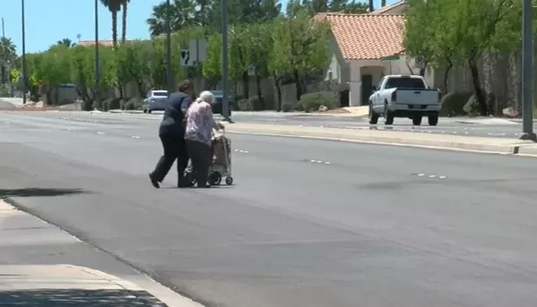Note: GJEL Accident Attorneys regularly sponsors coverage on Streetsblog San Francisco and Streetsblog California. Unless noted in the story, GJEL Accident Attorneys is not consulted for the content or editorial direction of the sponsored content.
This time around, California might begin to reform its ineffective and unfair jaywalking laws, as Assemblymember Phil Ting's A.B. 2147 has passed the legislature and is on its way to Governor Newsom.
Streetsblog has written a lot of posts about why jaywalking laws are a problem. CalBike has a good list of reasons to get rid of them on its website, including that jaywalking laws were created in the first place to get people out of the way of cars, not to keep them safe. They force people to walk long distances to cross streets legally. They reinforce an inequitable and unsafe hierarchy of street users which puts the most vulnerable users at the bottom and keeps them "safe" by erasing them. They encourage enforcement practices that put a heavy and unfair burden on low-income residents. They are disproportionately applied to Black people.
This segment from the show Adam Ruins Everything does a great job explaining the history of jaywalking.
Assemblymember Ting got a similar bill onto the governor's desk last year. Newsom vetoed it, saying he feared that it would "unintentionally reduce pedestrian safety and potentially increase fatalities or serious injuries."
A.B. 2147 moved easily through the legislature, but so did its predecessor. So what's different this time around that the same Governor might sign it? Assemblymember Ting told Bike Summit attendees this spring that Newsom reached out to him after last year's veto to find a solution, so he hoped for a better outcome. Ting, Newsom, and the CHP, which was holding its thumb on the scale, worked together to find common ground.
Instead of repealing the jaywalking law, A.B. 2147 defines specifically when police are allowed to stop pedestrians for unsafe street behavior. That is, crossing a street unsafely won't just suddenly become legal. The bill says that it would "prohibit a peace officer from stopping a pedestrian for specified traffic infractions unless a reasonably careful person would realize there is an immediate danger of collision with a moving vehicle or other device moving exclusively by human power."
Other states and cities have also begun to reform jaywalking laws.
CalBike provides an easy link to help you urge the Governor to sign A.B. 2147






